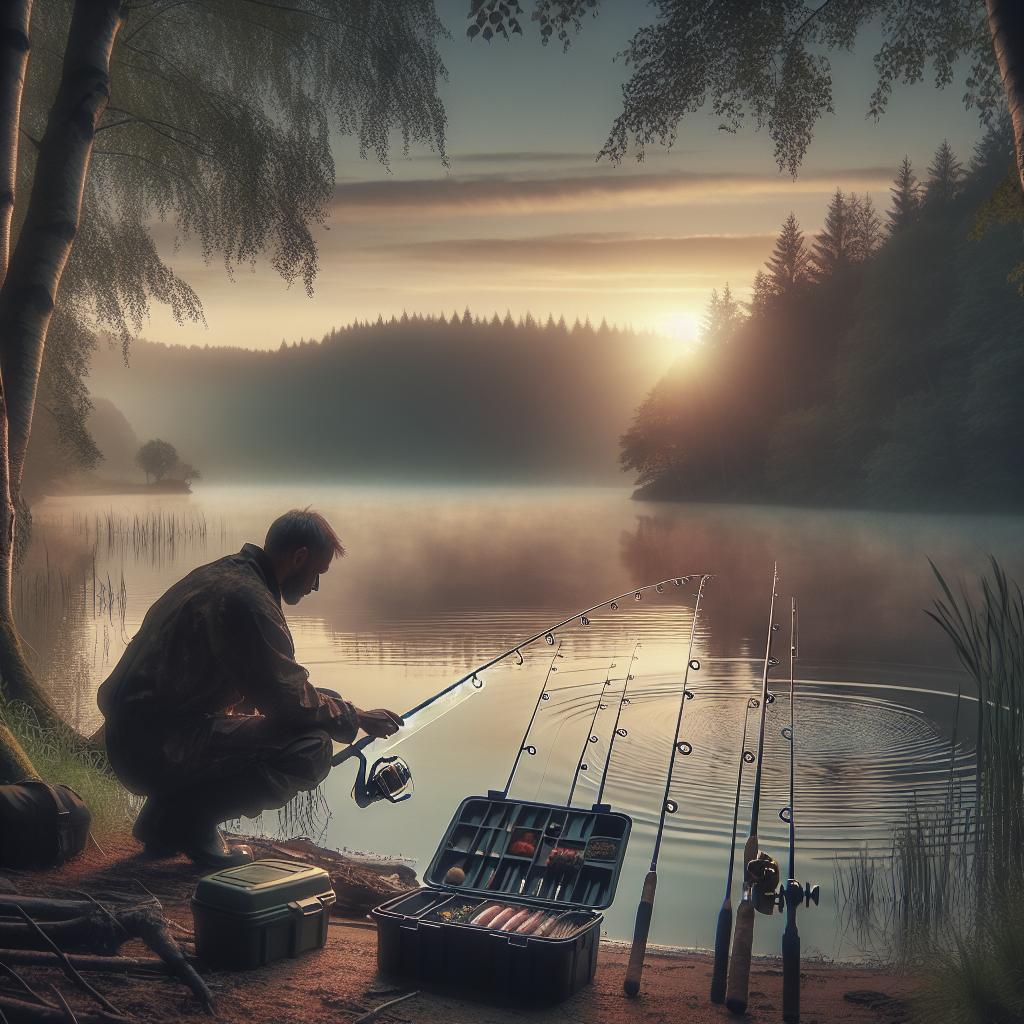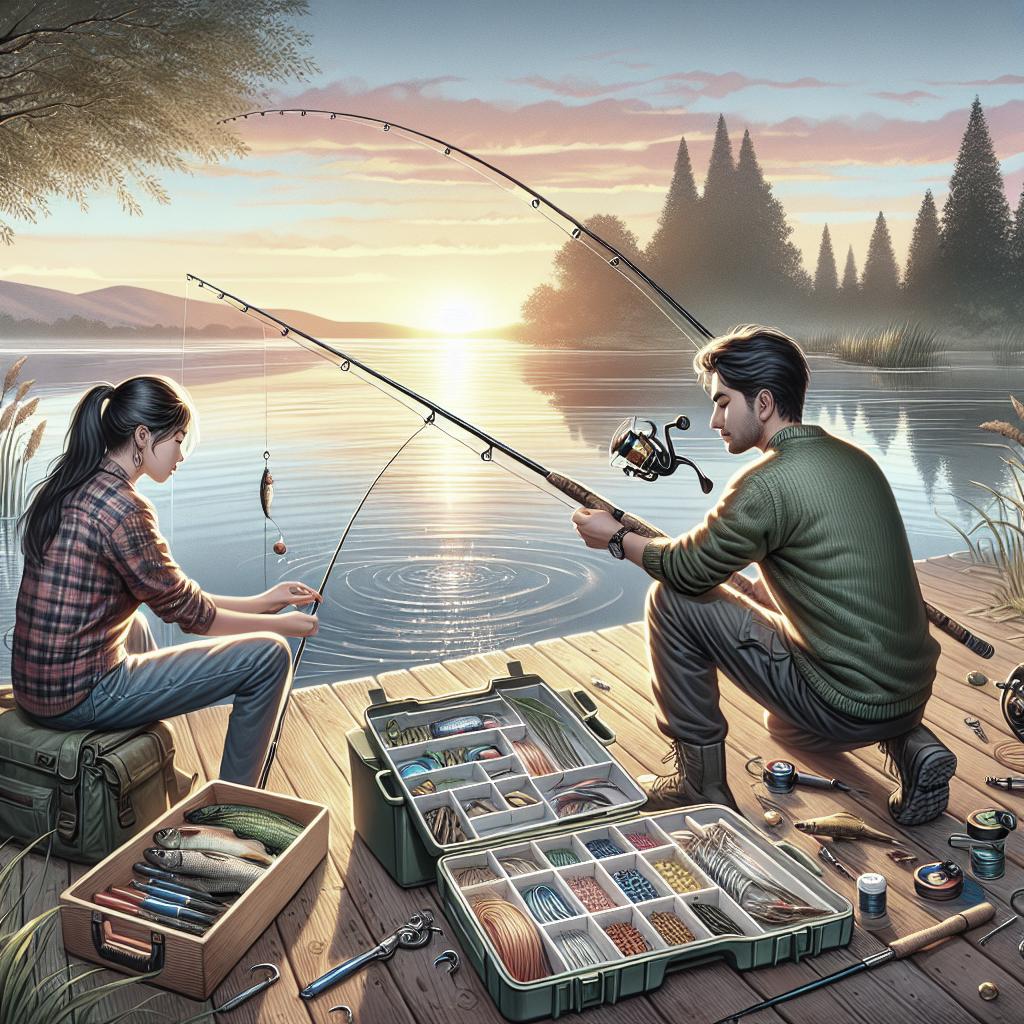“`html
How to Prepare for a Fishing Trip
Embarking on a fishing trip is an exciting endeavor that combines relaxation with a passion for nature. However, a successful outing requires preparation and understanding. This guide will take you through essential preparations, from getting adequate rest to selecting the appropriate gear, and mastering key fishing skills. Whether you’re a novice angler planning your first trip or a seasoned fisher hoping to improve your experience, these tips will help enhance your adventure and maximize enjoyment. We’ll also cover selecting fishing locations and provide answers to frequently asked questions. Finally, review a summary highlighting key points, ensuring you’re all set for a fruitful fishing excursion. Dive in and get ready for your fishing escapade!
Get Enough ZZZs
Getting enough sleep before your fishing trip is paramount. A well-rested body boosts your mental alertness, which is essential for an active day near water. It also enhances physical endurance, which you’ll need whether you’re casting lines, hiking to find the perfect spot, or handling vigorous catches.
Fatigue can put a damper on your trip and affect your ability to focus, making it more challenging to engage in activities that require concentration, like knot-tying and baiting hooks. Adequate sleep also supports your immune system, reducing the risk of falling sick on your adventurous day out. So, ensure to hit the bed early and let your body recharge for an enjoyable fishing excursion.
Pack the Right Gear
1. Sunscreen
When preparing for a fishing trip, sunscreen is a must-have item. Exposure to sunlight on open waters can result in severe sunburn, accelerating skin damage and increasing the risk of skin cancer. Choose a broad-spectrum sunscreen with an SPF of at least 30 to safeguard your skin from harmful UV rays.
Reapply sunscreen every two hours, especially if you’re sweating or have been swimming. Don’t forget to gear up with a protective hat and sunglasses, enhancing your UV defense. Investing in sun-protective clothing can also help manage prolonged sun exposure and make your fishing trip more comfortable.
2. Solar Generator
A solar generator is an eco-friendly power solution, especially useful in remote fishing spots with limited access to traditional power sources. This device can run small appliances, charge your gadgets, and keep communication lines open in case of emergencies.
Opt for a portable solar generator designed for outdoor activities. Its capability to harness energy from the sun will ensure your essential devices remain powered throughout your trip. This not only adds convenience but also provides safety by keeping you connected and well-equipped.
3. Basic Survival Kit
A basic survival kit is an indispensable companion on any fishing trip, preparing you for unexpected situations. Include essential items like a compass, whistle, first-aid kit, multi-tool, and emergency blanket. These tools can assist in finding directions, keeping you warm, and managing minor injuries.
It’s wise to tailor your kit based on the location and environment. For instance, insect repellent is crucial in areas prone to mosquitoes. Having a survival guide handy can also enhance your readiness for any potential challenges encountered during your journey.
4. Fishing Gear
The correct fishing gear is fundamental to a successful trip. This includes your fishing rod, reel, line, bait, and tackle box. Depending on your fishing technique and the type of fish you’re targeting, equipment may vary. For instance, saltwater fishing gear differs from freshwater setups.
Research the location to understand which species are prevalent and today’s weather conditions. This will guide you in selecting the appropriate gear to increase the likelihood of a good catch. Ensure everything is in working order before setting off to avoid any disruptions.
Finding the Right Spot for Fishing
Choosing the right fishing spot can be the difference between a fruitful day on the water and a frustrating one. Various factors like fish species, legal restrictions, accessibility, and environmental conditions should influence your decision.
Utilize local knowledge by consulting with other anglers or hiring a guide who can offer insights. Apps and online forums are valuable resources to identify popular locations based on user experiences and success rates. Season and weather changes can also affect fish behavior, so plan accordingly.
Remember to respect the environment and local wildlife. Always check if a fishing license is required and adhere to conservation practices, ensuring the chosen spot is preserved for future fishing enthusiasts.
Learn the Crucial Fishing Skills
1. Knot-tying skills
Mastering knot-tying is core to any fishing endeavor. Reliable knots secure your hook, lure, or bait to the line, significantly increasing your chances of a successful catch. Many types of knots exist, each suited for different fishing needs.
Common knots such as the improved clinch knot, Palomar knot, and loop knot are valuable to learn. Practice these skills at home to build confidence, ensuring quick and effective application during your fishing trip.
2. Water reading skills
Understanding water conditions is key to predicting fish activity and locating catch hotspots. Look for visible signs such as water ripples, current breaks, or areas around submerged structures that might attract fish.
Study tidal movements, water temperature, and clarity to assess potential fishing spots. Fish often congregate in regions where the current brings food, so interpreting these environmental cues can result in a more rewarding experience.
3. Casting skills
Casting is an essential skill that underlies successful fishing. Appropriate technique affects the distance and accuracy of your lure’s placement in the water, definitely positioning it for a promising catch.
Practice different casting methods like overhead, sidearm, and underhand to adapt to varying conditions and target species. Perfecting your cast will improve your engagement by bringing lure and bait precisely to strategic spots, enhancing your overall fishing repute.
4. Hooking skills
Once you have an interested fish, effective hooking skill ensures it stays on the line. It’s crucial to react swiftly and adeptly to subtle nibbles and hits, setting the hook securely to prevent the fish from escaping.
Refining your timing and technique enhances retention rates and reduces lost catches. Practice repeatedly with different fishing gear and environments to familiarize yourself with various fish tension responses.
FAQ
1. What is the best time of day for fishing?
Generally, early morning and late afternoon are optimal times due to cooler temperatures and increased fish activity.
2. Do I need a fishing license?
Licensing varies by location. It’s always crucial to verify local regulations and acquire the necessary permissions before your trip.
3. How can I improve my chances of catching fish?
Proper preparation, understanding water conditions, having the right bait, and honing your fishing skills are all effective strategies to increase catch rates.
Future Prospects
As you dive into the world of fishing trips, adequate preparation is your key to success. From catching sufficient rest to mastering fundamental skills, each step enhances your adventure. Selecting suitable gear, choosing strategic locations, and applying learned techniques are empowering practices for any fishing enthusiast.
Keep honing your skills and remaining adaptable to transformation within the industry, as technological advancements and ecological aspects reshape how we approach our angling pursuits. Embrace your fishing adventures and contribute to conservation efforts for sustainable fishing. Pursue your passion as you nurture the balance between recreation and responsibility.
Popular Categories
| Category | Key Focus |
|---|---|
| Sleep Preparation | Enhancing mental alertness and stamina |
| Gear Packing | Sunscreen, Solar Generator, Survival Kit, Fishing Equipment |
| Fishing Locations | Species, Accessibility, Local insights, Environmental conditions |
| Fishing Skills | Knot-tying, Water reading, Casting, Hooking |
| FAQs | Timing, Licensing, Catch improvement tips |
“`


